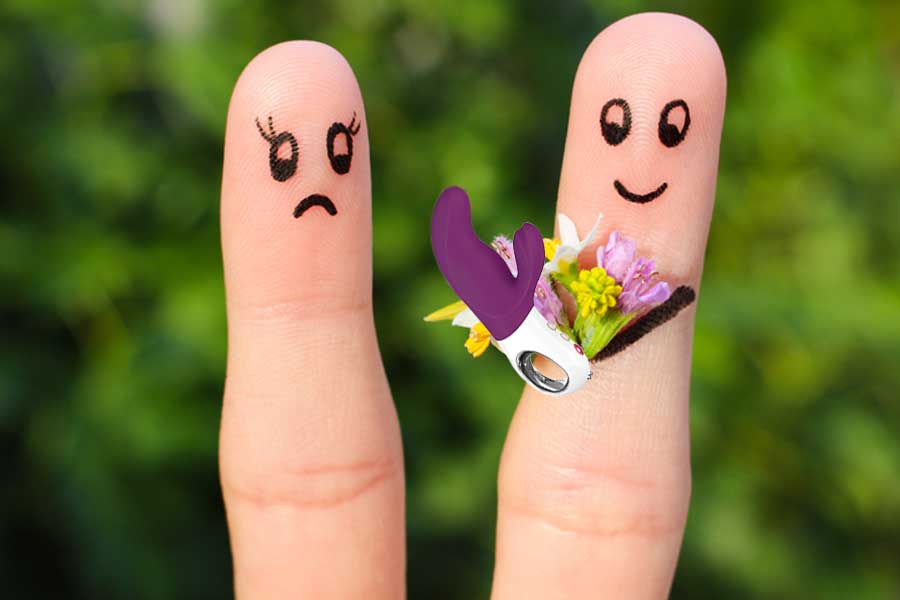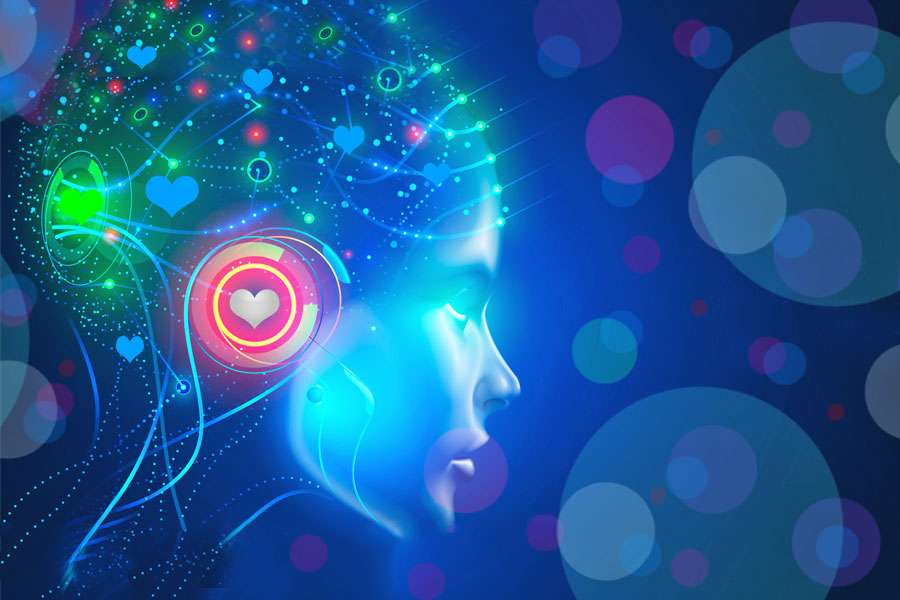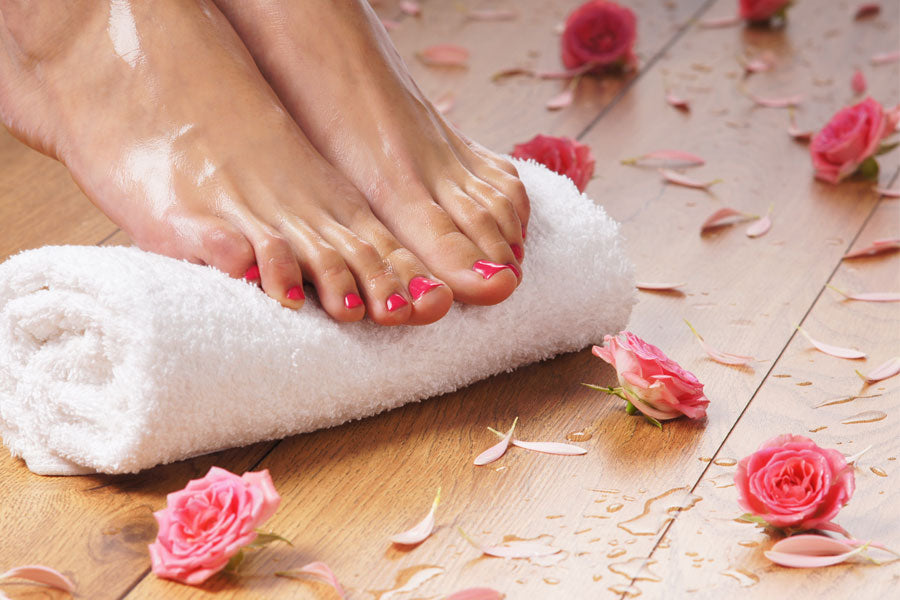Trusted for 25+ Years
Low Sex Drive In Women: Alternative Treatments

Dr. Lisa Lawless, CEO of Holistic Wisdom
Clinical Psychotherapist: Relationship & Sexual Health Expert

Loss of Sexual Desire
A psychological lack of sexual desire is typically considered Female Sexual Interest Arousal Disorder (FSIAD) or a Sexual Aversion Disorder (SAD). FSIAD is demonstrated by the lack of or absence of sexual fantasies and desire for sexual activity. In contrast, SAD is a phobic aversion to sex and is more closely associated with anxiety. These diagnoses are not associated with asexuality, which is someone who does not experience sexual attraction.
Those that live without sexual desire may not feel a need for it; however, it is often a conflict for them if they choose to have a relationship with someone who wants sexual intimacy. This can lead to a painful source of emotional conflict and, in some cases, the relationship ending.
What Causes SAD & How Is It Treated?
Causes of SAD are typically extreme stress, PTSD, an anxiety-based disorder, panic disorder, or experienced sexual trauma. SAD is often treated using anxiety-reduction techniques such as systematic desensitization with small exposures to sexuality, medical treatments such as anti-anxiety medications, and psychological therapies.
What Causes FSAID & How Is It Treated?
FSIAD has many causes and can include pain with vaginal penetration. It can be caused by physical, mental, and emotional factors. Treatment depends on the underlying cause.
Traditional Approach: Hormone Replacement Therapy (MHT)
Menopausal Hormone Therapy (MHT), also known as Hormone Replacement Therapy (HRT), is typically used in Western medicine to address FSIAD; however, some health risks are associated with this, including breast cancer, heart disease, and strokes. MHT began in the 1960s and was very popular until the late 1990s. In 2002, the Women's Health Initiative (WHI) did a study that showed it was more detrimental than beneficial. However, since then, that study has been shown to be inadequately designed, evaluated, and reported. New studies show that the use of MHT has a beneficial effect on the cardiovascular system, reducing coronary disease and mortality, and may provide more beneficial results than detrimental side effects. It is still not recommended for women who have had hormone-based breast cancer.
It's also important to note that both trials were shut down not due to cancer risk but because MHT use led to an increased risk of heart disease. The media highlighted the correlation with cancer which generated public panic around the cancer risk for all women.
A few years after WHI was terminated, investigators concluded that the initial interpretations of the study's results were partially incorrect upon closer inspection. One of the issues with the study was that the women in the study had been in their 60s and 70s and far past the time in which most women would benefit from MHT. In addition, these women already suffered from the same conditions that MHT might have preempted, especially concerning heart disease. Being administered MHT so late in their lives likely made the therapy less capable of reversing or reducing symptoms that had already begun. The current thinking is that MHT should be primarily used as a short-term solution and only for some women.
Women who initiated MHT when they were younger than 60 years of age or otherwise within ten years of menopause had a lower mortality rate than those who did not take MHT. An analysis of thirty clinical trials had shown that women who began before age 60 had a 39% lower risk of death than those who didn't.
Women with a family history of cancer or who have had cancer should consider nonhormonal therapies. Cancer risk is high in women with a personal history of breast, uterine or ovarian cancer and will increase the risk of recurrence, generally among breast cancer survivors.
Cancer risk is dependent on the duration of use as the risk increases the longer a woman is on the therapy. Risks also grow higher depending upon the type of progestin used. Medroxyprogesterone acetate (MPA) is the type of progestin used in the Women's Health initiative trials, which has been shown to raise one's risks considerably. In contrast, other progestins such as micronized progesterone carry a lower risk for those who haven't had a hysterectomy.
Hysterectomies are the second most common surgery among women in the United States and the most common cause of early menopause. Many women tend to have hysterectomies in their early 40s rather than in their 50s. Their estrogen levels drop suddenly rather than gradually, leaving them more vulnerable to the harmful effects of hormonal depletion with an increased risk of heart attack disease, osteoporosis, cognitive decline, and perhaps even premature death.
While taking MHT resulted in a higher incidence of breast cancer than taking a placebo, the estrogen-alone study showed precisely the opposite effect treatment was associated with a 23% reduced incidence of breast cancer in women who had undergone a hysterectomy.
Because of the reduction in women taking estrogen, it has been estimated that it is possible that a minimum of 18,601 and a maximum of 91,610 postmenopausal women who had a hysterectomy died prematurely from heart disease because they did not take estrogen.
Whether or not you've had hysterectomy figures prominently in how you assess your choices. Estrogen-only therapy is generally considered safe for women who have had a hysterectomy, whereas estrogen plus progestin is safer for those who haven't.
If you are interested in it, you should review the risks with your healthcare provider to determine if it is right for you. It should be noted that many primary care doctors remain unprepared to address women's concerns regarding MHT, which is the number one question for every woman approaching menopause. If you want to meet with someone who specializes in hormones, you may wish to see an endocrinologist who can diagnose and treat hormone-related issues.
There are two types of MHT:
- Combined MHT (estrogen and progestogen) for those who still have their uterus.
- Estrogen-only MHT is for those who have had their uterus removed after a hysterectomy.
To learn more about sexual dysfunction, please see our Female Sexual Dysfunction Guide.
Alternative Approaches
Acupuncture
Acupuncture is also an excellent way to treat physical issues and mental and emotional blocks. Our physical, emotional, and mental health are interconnected, and acupuncture treats every level. In Chinese medicine, the liver, spleen, and kidney energy systems are connected to the genitals and hormones. Thus, treating those points can positively affect sex drive, menstrual cycle, fertility, conception, pregnancy, and menopause. Learn more through our Sex & Acupuncture Guide.
Nutrition
We often forget that even our sexual functioning can depend on our nutritional needs being met and can drastically affect our hormone production. Certain foods help balance hormone levels, such as sweet potatoes and seaweed, and exploring those can be fun and easy. See more here: Nutrition Guide for Good Sex & Health.
EMDR
Beyond traditional cognitive and behavioral therapy, other alternative treatments, such as EMDR therapy. There have shown positive results for both FSIAD and SAD. A website to find out more about this is EMDR.com.
Holotropic Breathwork
If one is very analytical, introspective, etc., then a more intensive, visceral way to release feelings that may hold one back psychologically is Holotropic Breathwork. The national site for this is Breathwork.com.
Therapy & Relationship Work
Sex therapy can be beneficial for people to explore sexuality with a specialist. This can be done alone or with a partner. For more information, please see our helpful guide: Sex Therapy & Counseling. You can also explore our relationship guides.
Massage Therapy
Massage therapy may also allow one to get more acquainted with their body. Many sexual issues are dealt with effectively from therapeutic massage for a few reasons. It brings them back in touch with their body and often sparks an emotional release during the session. It would be best to let the massage therapist know in advance about what issues you are currently trying to work through to prepare for the emotional release, which typically results in crying. Believe it or not, massage therapists are trained to deal with this as it happens quite frequently. It is truly amazing how much emotion we hold in our bodies. Having a partner provide massage may also be helpful. For more information, please see our educational guide: Sensual Massage Techniques.
Clitoral Stimulators
In addition to providing pleasure, increased ease in stimulation, and a way to de-stress, clitoral stimulators such as vibrators and air pulse stimulators have also been shown to greatly assist those with sexual dysfunction. Those with sexual dysfunction and disabilities have found that these sex toys are essential to their sex life and provide increased blood flow to the genitals. This, in turn, allows for increasing sexual response and even orgasms. The adage that if you don't use it, you lose it is quite accurate regarding sexuality. Using a clitoral stimulator can help you get the blood flowing again, significantly increasing sexual response and desire.
A national study found that women who used vibrators had better sex life and overall sexual functioning. Vibrators have been shown to provide women with higher arousal levels, easier to achieve orgasms, increased amounts of orgasms, and increased sex drive. Please see our educational guide: How To Use A Vibrator. Also, see our body-safe vibrators.
Air Pulse Stimulators (Clitoral Suction Vibrators)
Clitoral suction vibrators (air pulse sex toys) don't vibrate; rather, they provide air pulses that stimulate the clitoris. They have a round opening for the clitoris. They are especially beneficial for women who struggle to have orgasms because they do not create the desensitization (numbing) that vibrators do when used for long periods. As always, discuss this with your physician before using it regarding your specific health needs. Learn more through our Air Pulse Stimulators Guide or see our body-safe Clitoral Suction Vibrators.







